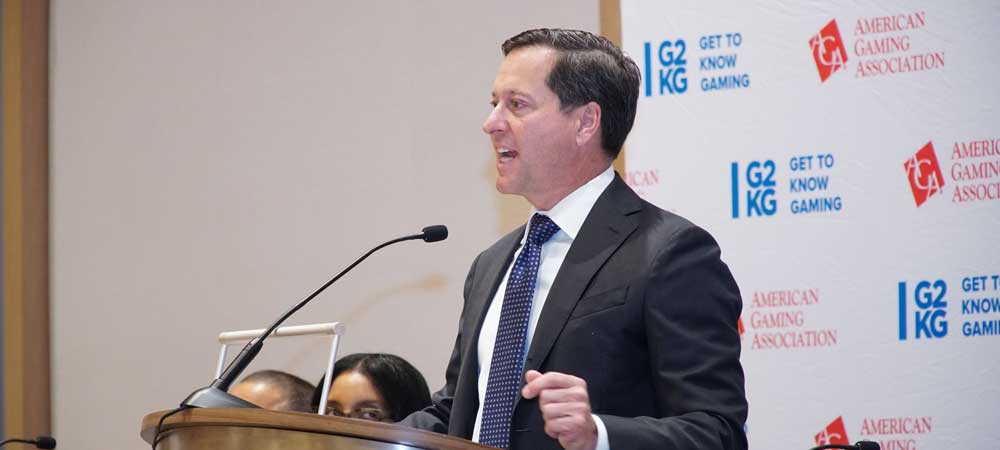- American Gaming Association CEO Bill Miller is concerned about the ineligibility of gaming businesses for loans from the Small Business Association’s Paycheck Protection Program.
- Under the current guidelines, hundreds of thousands of casino and gaming industry employees will be left unprotected during the COVID-19 crisis.
- Gambling businesses will suffer greatly from the lack of support from the SBA, but so will local ancillary businesses that rely on business from gambling patrons.
WASHINGTON – On Friday, the CEO of the American Gaming Association (AGA), Bill Miller, expressed concerns that gaming businesses are being unfairly excluded from the Small Business Association’s (SBA) Paycheck Protection Program.
The Paycheck Protection Program (PPP) is a low-risk loan program wherein small businesses can get the money they need to keep their employees on payroll and make rent, mortgage and utility payments. Businesses will be eligible for partial or full loan forgiveness by meeting certain payroll conditions.
In his scathing statement, Miller said that the PPP “relied on antiquated, discriminatory regulations that ignore today’s economic reality and the Congressional intent behind the CARES Act.”
As of the time Miller’s statement, 987 of 989 retail and tribal casinos under the AGA had closed their doors in response to the COVID-19 crisis. Despite their extreme profitability, these casinos will likely be unable to keep employees on payroll while revenues are either heavily reduced or eliminated entirely.
Hundreds of thousands of gaming workers will be left completely unprotected by the SBA’s exclusion of gambling businesses from PPP eligibility. Many will likely have to file for unemployment, increasing the already heavy strain on the unemployment benefits system.
The blow dealt by this program to casinos will also be felt by other businesses that directly benefit from the popularity of retail casinos and brick-and-mortar sportsbooks—businesses like local restaurants and retail shops.
Urging the SBA to reconsider its loan guidelines has become a top priority for Miller and the AGA.
“Unless amended,” Miller says, “these initial guidelines will irreparably harm one-third of the U.S. casino industry and the hundreds of thousands of Americans that rely on gaming business for their livelihood.”
Could The Guidelines Change?
It is unclear if the SBA will be willing to reconsider its guidelines. One potential avenue for the AGA could be to appeal to President Trump directly. Trump has previously operated a series of casinos in New Jersey, but his last casino property closed its doors in 2016.
As a former casino owner, he might be sympathetic to the needs of the industry, but the President likely has more pressing matters demanding his immediate attention during a national emergency.
Another potential move for the AGA could be to start directing members to use their casino properties for public benefit. The economy is approaching a full-on depression, and millions of Americans have lost their jobs and potentially even their homes.
Meanwhile, casinos and retail sportsbooks with thousands of hotel rooms sit completely empty and unused. Adapting these properties to serve the public during a time of need could make gambling businesses a much higher priority for government relief programs.
Unfortunately, no matter how the casino industry proceeds, COVID-19 is going to leave deep, long-lasting scars and many businesses will be unable to recover.
Advertising Disclosure
In order to provide you with the best independent sports betting news and content LegalSportsBetting.com may receive a commission from partners when you make a purchase through a link on our site.
News tags: AGA | American Gaming Association | Bill Miller | Coronavirus | COVID-19 | Donald Trump | President Trump | SBA | Small Business Administration

With a dual background in English and sports performance and business analytics, Carter aims to write stories that both engage and inform the reader. He prides himself on his ability to interweave empirical data and traditional narrative storytelling. When he isn’t keeping readers up to date on the latest sports betting legal news, he’s banging his head against a wall regretting his decision to be a Tampa Bay Buccaneers fan.


 College Football Betting
College Football Betting Best Online Sports Betting
Best Online Sports Betting Best Legal NFL Betting
Best Legal NFL Betting States With Legal Sports Betting
States With Legal Sports Betting Sports Betting Events
Sports Betting Events




